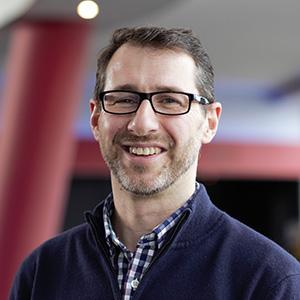Prof
Nicholas
Dunne
Primary Department
Faculty of Engineering and Computing
Role
Full Professor, Deputy Dean

5712
Email Address
nicholas.dunne@dcu.ie
Campus
Glasnevin Campus
Room Number
SA310
Academic biography
Professor Nicholas Dunne is the Chair of Mechanical and Manufacturing Engineering in the School of Mechanical and Manufacturing, the Founding Executive Director of Biodesign Europe and the Executive Director of the Medical Engineering Research Centre Engineering (MedEng) at DCU. Professor Dunne is also a Honorary Research Professor of Biomaterials Engineering at the School of Pharmacy at the Queen's University of Belfast (QUB), an Adjunct Professor of the School of Mechanical Engineering at Trinity College Dublin and a Principal Investigator in the Trinity Centre for Bioengineering.
Prior to his appointment at DCU, he was the Professor of Biomaterials Engineering at QUB He has also held Joint-Directorship positions in the Advanced Materials and Processes Research Cluster and the Polymer Processing Research Centre at QUB.
Professor Dunne’s research programme lies at the interface of materials science, engineering and biology. He leads a multidisciplinary group working at the host/biomaterial interface that has played a leading role in the development of biomaterials that simulate an efficacious drug delivery or therapeutic response. This work spans fundamental mechanisms at the host/material interface as well as translational research to target non-union bone defects, bone metastases and chronic wounds. This research has been developed via a strong, interdisciplinary programme complemented with over-arching institutional and industrial collaborations.
Internationally he is recognised as an authority on biomaterials for orthopaedic applications, having been awarded an Orthopaedic Research Society/British Orthopaedic Research Society Fellowship (2008) and the RAEng/Leverhulme Trust Senior Research Fellow Award (2010). His work has been supported continuously by RCUK, EU and Charity funding organisations and also attracts significant interest from industrial partners. To date, he has secured ≈€19M PI research funding (and €18.5M as CI) - from the EU Commissio, Engineering and Physical Sciences Research Council, Science Foundation Ireland, Medical Research Council, Invest NI, Irish Research Council, Innovate UK and The Royal Academy of Engineering and several major multinational medical device companies.
He has authored +250 peer-reviewed journal publications and delivered +500 research presentations at national and international biomaterials and biomechanics conferences He is a Journal Editor of Biomaterials Advances and Editorial Board Member of Regenerative Biomaterials, Royal Society of Chemistry - Biomaterials Science, Journal of Materials Science: Materials in Medicine, International Journal of Biomaterials and Proceedings of the Institution of Mechanical Engineers, Part H: Journal of Engineering in Medicine.
He is also highly passionate about engaging new and young researchers on matters that are important to their research career and professional development. This enthusiasm and motivation have been hardened during his time as President of Northern Ireland Bioengineering Society (2008-2015) and Spokesperson of the Young Scientist Fora of the European Society for Biomaterials (2010-2014) and UK Society for Biomaterials (2011-2015). He was the VP and Secretary of the Executive Organising Committee of the 11th World Biomaterials Congress (Glasgow, 2020) and also on the Executive Organising Committee member of the 8th World Biomechanics Congress (Dublin, 2018), as well as the President of the Royal Academy of Medicine in Ireland – Section of Bioengineering (2019-2023). He is a member of the European Society for Biomaterials Council (2019) and currently holds the position of Council Secretary.

